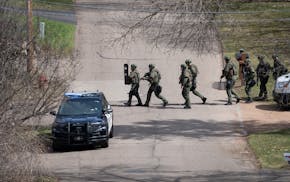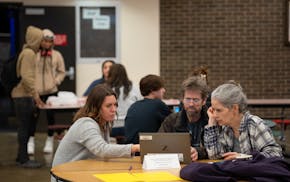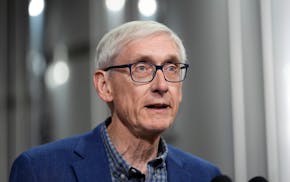The Minneapolis City Council on Friday ushered in a new era of City Hall/neighborhood relations after rejecting attempts to strengthen the hand of a new resident-dominated board that will advise the city.
The council approved creating a new department to deal with neighborhood groups and city residents. And it created a commission of at least 16 city residents that will serve as a mostly advisory body to that department.
What began as an effort by activists to devise funding to preserve the city's nationally recognized Neighborhood Revitalization Program evolved into a much broader revamping of city-resident relations.
"It's a new day for neighborhoods in Minneapolis," said Council Member Betsy Hodges, representing southwest Minneapolis, where the new plan -- that some activists criticized as top-down reform -- has drawn stronger support.
Doug Walter was among the neighborhood activists who left the 2 1/2-hour debate unsatisfied. The staff member of a Nokomis-area neighborhood group called council members condescending and said they showed a "callous disregard" for neighborhood sentiment.
The new department will have broader responsibilities than the old NRP, dealing with interpretive and disability services and other City Hall-resident interactions. Many details remain to be worked out, but plans are to have City Coordinator Steven Bosacker name a new assistant who will head the department.
How much input the resident commission will have in that appointment gave rise to the debate's biggest clashes. A working group of City Hall insiders recommended that the board serve as a search committee and recommend three names to Bosacker.
Council Member Sandra Colvin Roy attempted to allow the commission to pick the new neighborhood czar--subject to council approval--and to evaluate and to fire the appointee. That failed on an 8-4 vote with Cam Gordon, Gary Schiff and Diane Hofstede joining her. A choked-up Colvin Roy said centralized control of neighborhood affairs will undermine neighborhood creativity and independence.
Having neighborhoods select the new director was a key point for activists. But it foundered amid concerns that a council role in the selection could politicize the job and undermine Bosacker, while running afoul of a city ordinance requiring non-civil service appointees to report to department heads or their deputies. The council also rejected Gordon's proposal to give the commission a stronger role in recognizing neighborhoods and defining their boundaries.
The new board's largely advisory role is to direct the next phase of NRP, to help shape NRP's neighborhood-directed funding, to make recommendations on competitive grants to neighborhoods, to shape community participation efforts and the new department's plans and budget, and to help achieve the city's goal of putting city departments more in sync with resident priorities.
Steve Brandt • 612-673-4438
13-year sentence for unlicensed driver who fatally hit motorist while fleeing police in Oakdale

Man killed in Minnetonka by law enforcement started gun battle with deputies, BCA says

FAFSA completions in Minnesota drop amid flawed efforts to update form

Wisconsin Republicans ignore governor's call to spend $125M to combat 'forever chemicals'

